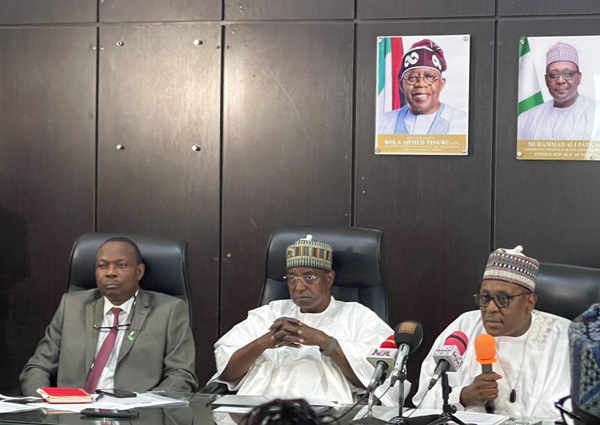
The Federal Government has reiterated its strong commitment to leading global efforts in the fight against Antimicrobial Resistance (AMR), a growing threat to public health, food systems and sustainable development.
The Minister of Health and Social Welfare, Prof. Muhammad Pate made the declaration on Tuesday in Abuja during the inaugural meeting of the Ministerial Advisory Committee on AMR. He described AMR as a major global challenge, responsible for approximately 1.3 million deaths annually and threatening progress across health, agriculture, and the environment.
Pate announced that Nigeria would host the Fifth Global High-Level Ministerial Conference on AMR in 2026, marking the first time the event will be held on African soil. He said the conference would not only highlight Nigeria’s leadership but also serve as a platform to amplify African voices in shaping global solutions.
“Nigeria is committed to leading the fight against AMR through coordinated, inclusive action,” he said. “The 2026 conference will serve as a catalyst for accountability, sustainable funding and effective innovation under the One Health strategy.”
He disclosed that preparations had already begun, with Nigeria drawing technical support from previous host nations, including Saudi Arabia, Oman and The Netherlands. He added that the conference is not solely a Nigerian project but a continental mandate to represent Africa’s unified position on AMR.
The event will be jointly led by the Federal ministries of Health and Social Welfare, Environment and Livestock Development, in line with the One Health framework that integrates human, animal, and environmental health sectors.
Speaking on behalf of the Ministry of Livestock Development, Idi Maiha warned that AMR poses a serious threat to livestock productivity, food systems, and rural livelihoods. He stressed that the One Health approach must guide collective action. “It is not just a concept, it is our operational framework,” he stated.
Representing the Minister of Environment, Balarabe Lawal, the director of pollution control and environmental health, Omotunde Adeola, described AMR as an environmental crisis. She pointed to the improper disposal of hospital, agricultural, and pharmaceutical waste as contributors to resistance, calling for urgent integration of WASH (water, sanitation and hygiene) into AMR strategies.
Lawal said the 2026 conference would provide low- and middle-income countries the opportunity to shape global AMR policies and showcase homegrown innovations. “Nigeria’s leadership will spotlight practical solutions that protect health, secure food chains and preserve ecosystems,” he said.
All three ministries pledged to work in synergy under the One Health framework to ensure the success of the conference and continued action against AMR.
Science Nigeria reports that the Ministerial Advisory Committee will drive preparations for the event, coordinate multisectoral engagement, and guide Nigeria’s AMR strategy ahead of the 2026 UN high-level meeting.

